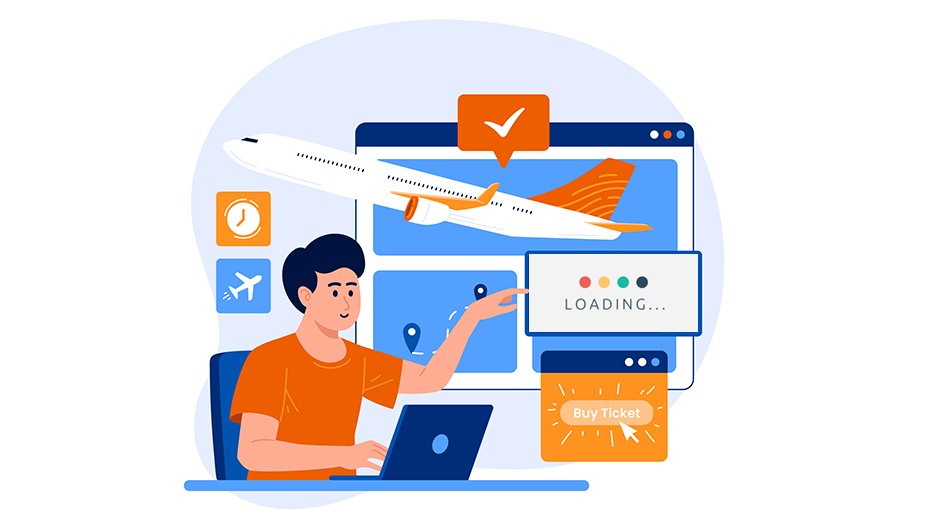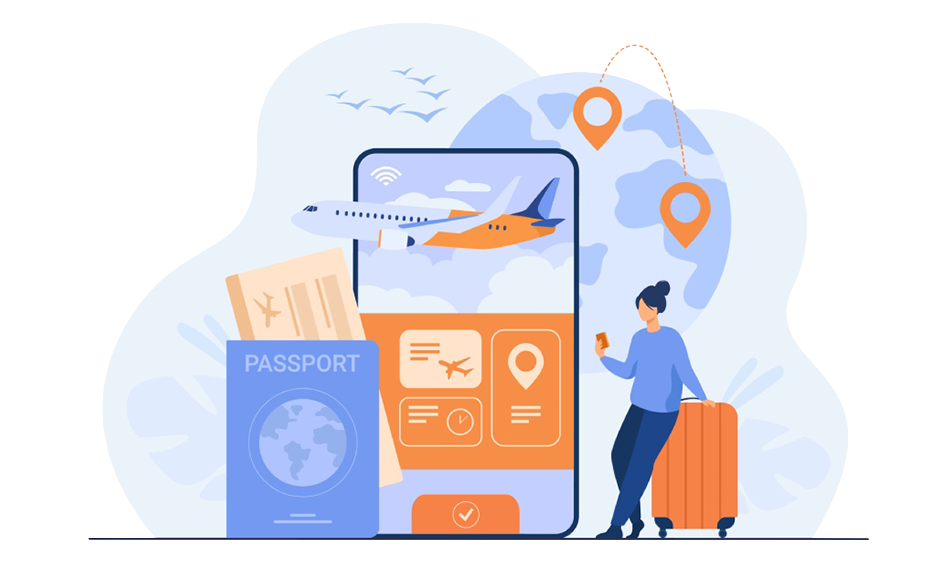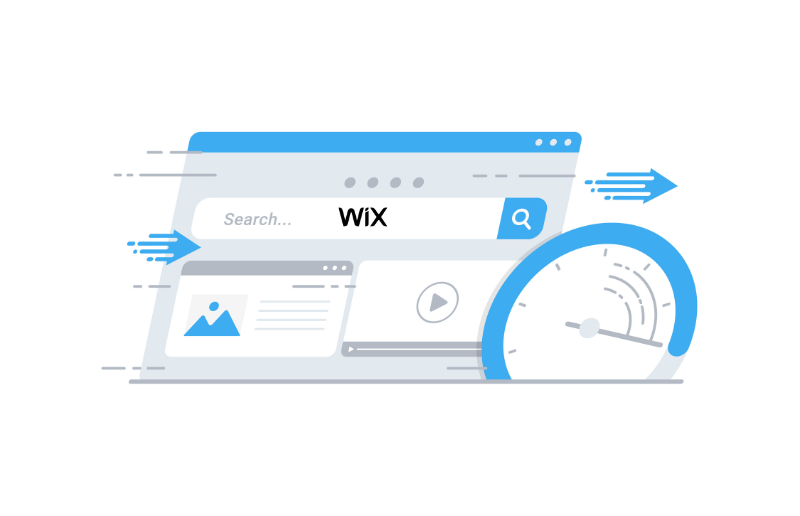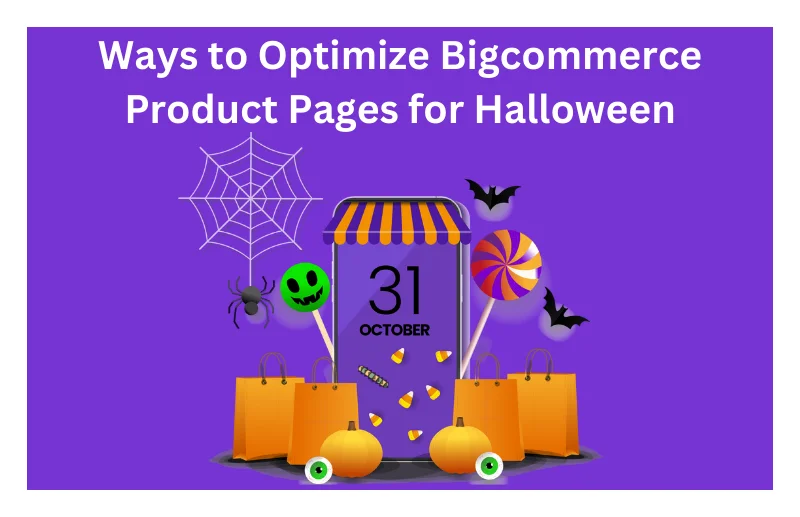TL;DR: Fast travel agency website speed is essential for attracting, engaging, and converting visitors into bookings. A slow site can cost valuable bookings, hurt SEO, and frustrate mobile users. By methods like optimizing images and reducing heavy scripts, travel agencies can deliver smoother browsing, better rankings, and higher conversions. Learn the proven ways to improve your travel bookings.
In this fast-paced world, travel is one of the best solutions to get some moments of relaxation in a busy life. The competition in the tourism and hospitality industry is higher than ever. For travel agencies, the challenge is particularly acute: to provide seamless, faster user experiences on their travel website. Here, optimizing the travel agency website speed came up as a solution that improves your conversions and user experience.
We’ll unpack the solution to enhance your travel website speed and performance to increase your tourist bookings.
Why Your Travel Website Isn’t Getting Enough Bookings?

A poor online booking experience is the biggest reason for travel websites to lose potential customers. Travelers expect mobile-responsive sites with easy navigation and a fast booking process. Here are the most common issues that are preventing your travel agency from getting confirmed bookings:
Non-Responsive Mobile Website
More than half of travel-related searches and bookings now come from mobile devices. Mobile website optimization, including layout, navigation, and loading time, is essential to improve conversions. Visitors using their phones expect a fast and smooth experience. A non-mobile-responsive site often feels clunky, which undermines confidence and reduces travel bookings.
Poor Website Navigation
Even if your site looks good, if visitors struggle to find what they want (destinations, packages, offers, booking forms), you’ll lose them. The smoother the journey from landing page to “Confirm Booking”, the more likely you are to convert. Confusing menus or too many clicks create friction.
Non-Engaging Web Images
Visuals are key in travel; people buy dreams of places, experiences, sunsets, beaches, and culture. Non-engaging web images reduce user trust, weaken destination appeal, and fail to inspire action, leading to fewer inquiries, lower engagement, and significantly fewer travel bookings.
Slow Loading Travel Website
Website speed is the major reason for many lost tourist bookings. The metric of travel website speed is not just “nice to have,” it’s a conversion driver. Google studies show that travel websites experienced a 10.1% increase in conversions with just a 0.1-second improvement in mobile site speed. If your travel website is slow, you’re literally losing bookings before you ever get a chance to showcase your offer.
Complicated Booking Forms
Once a potential customer is engaged, the final hurdle is the booking process. If the form is long, confusing, and has many columns to fill, you risk drop-off. A streamlined, fast form increases completion. When combined with good travel website speed optimization, you significantly reduce abandonment.
Less Up-Selling and Cross-Selling Offers
In travel, the initial booking is often just the start. If you don’t offer additional options like excursions, meals, travel insurance, and upgrades, you’re leaving revenue on the table. But you also risk losing customers because they find those options elsewhere. A well-optimized site with a travel website, mobile speed, and a smooth upsell flow keeps them engaged and buys more.
How Travel Agency Website Speed Matters for Your Business

Your travel agency website speed matters because it underpins every user interaction. A fast-loading page means the prospective traveller sees your offers, images, and booking form almost immediately; they won’t bounce out of impatience. Promodo study shows that when page load time increases from 1 second to 3 seconds, the likelihood of bounce rate rises by 32% (especially harmful for mobile users).
Thus, if your travel website speed is poor, you can expect higher bounce rates, fewer page views, reduced engagement, lower tourist bookings, and ultimately lost revenue.
12 Proven Ways to Improve Travel Website Bookings

Improving travel website speed is one way to boost travel bookings. Here are some proven ways to enhance your tourist bookings:
1. Employ CDN for Global Bookings
Use a Content Delivery Network (CDN), so your website content is served faster to different geographical locations. Travellers may come from anywhere, and if your hosting is local and distant users suffer latency, your site slows down. A CDN reduces that lag, enhancing the user experience and promoting travel bookings.
2. Improve Travel Agency Website Speed
Website speed remains at the centre of user experience, no matter how enticing your travel offers are. Slow travel website speed may bounce back your potential traveller, even before they see your offers. You can automate the website speed optimization process with advanced tools like Website Speedy that implement methods like lazy loading, caching, and CDN to enhance your travel website speed.
3. Optimize Travel Images and Media
Images and videos are very important on a travel website as they give an idea about the travel experience to the users. Remember to balance image quality with loading speed. High-quality images are often the biggest culprit in slowing a site. Compress images using tools like Image Optimizer Pro and use modern formats before putting them on your travel website to maintain user experience and website speed.
4. Provide Competitive Discounts
Offer attractive deals that make the visitor feel they are getting extra value. Discounting a package or adding a bonus improves conversion and makes you stand out from your competitors.
5. Use Ratings and Reviews to Build Trust
On travel sites, trust is key. Display credible reviews and ratings prominently. Users who see others have had great experiences are more comfortable booking.
6. Offer Unique Travel Packages
To stay ahead in the competition, try to add more benefits like flights, accommodation, activities, meals, insurance, etc., to your travel package. Unique offerings set you apart from competitors and attract more bookings.
7. Stay Updated on the Travel Industry Trends
Stay informed about travel and tourism trends, like what kinds of experiences are in demand (e.g., wellness retreats, sustainable travel, remote destinations). Awareness about ongoing travel trends helps you tailor travel packages and craft offers that convert.
8. Streamline your Operations through Automation
Optimizing website speed and performance is not everyone’s cup of tea. It may be difficult for people with less technical knowledge. So you can automate many of your website functions with the help of tools like Website Speedy that audit your website performance and implement potential solutions like lazy loading, caching, and minifying files to improve your travel website performance automatically.
9. Personalize User Experience
Use data from prior interactions or bookings to tailor offers (e.g., “Based on your last beach holiday, we think you’ll like this boutique island escape”). Another way is through email marketing. By sending welcome, registration, and after journey emails, you can personalize the user experience and increase engagement.
10. Go for a Fast and Reliable Hosting Provider
Even with optimized content and files, if your hosting server is slow or far from your audience, your travel website will load slowly. Choose a hosting plan with strong performance metrics and good uptime.
11. Leverage Past Booking Data for Tailored Offers
Use your booking database to identify trends (e.g., family travellers, honeymooners, solo adventurers) and craft targeted offers. This increases relevance, conversions, and e-commerce efficacy.
12. Offer Flexible Cancellation Policies
Travel bookings often influence whether you offer flexible cancellation or postponement, you reassure users and reduce their risk. Flexible policies provide peace of mind to the users that they can cancel anytime if needed, increasing the willingness to book.
Conclusion
For travel agencies aiming to boost tourist bookings, the takeaway is clear: your website must be fast, responsive, and user-friendly. Without optimized travel website speed, you’re harming your own performance and travel bookings. Visitors will hit the back button before they engage, shop, or book.
By addressing mobile responsiveness, navigation ease, compelling images, streamlined booking flows, and speed optimization, you can prepare your business for higher conversion of travel bookings. Make travel website speed optimization a priority today, and you’ll see tangible improvements in your booking numbers.















































